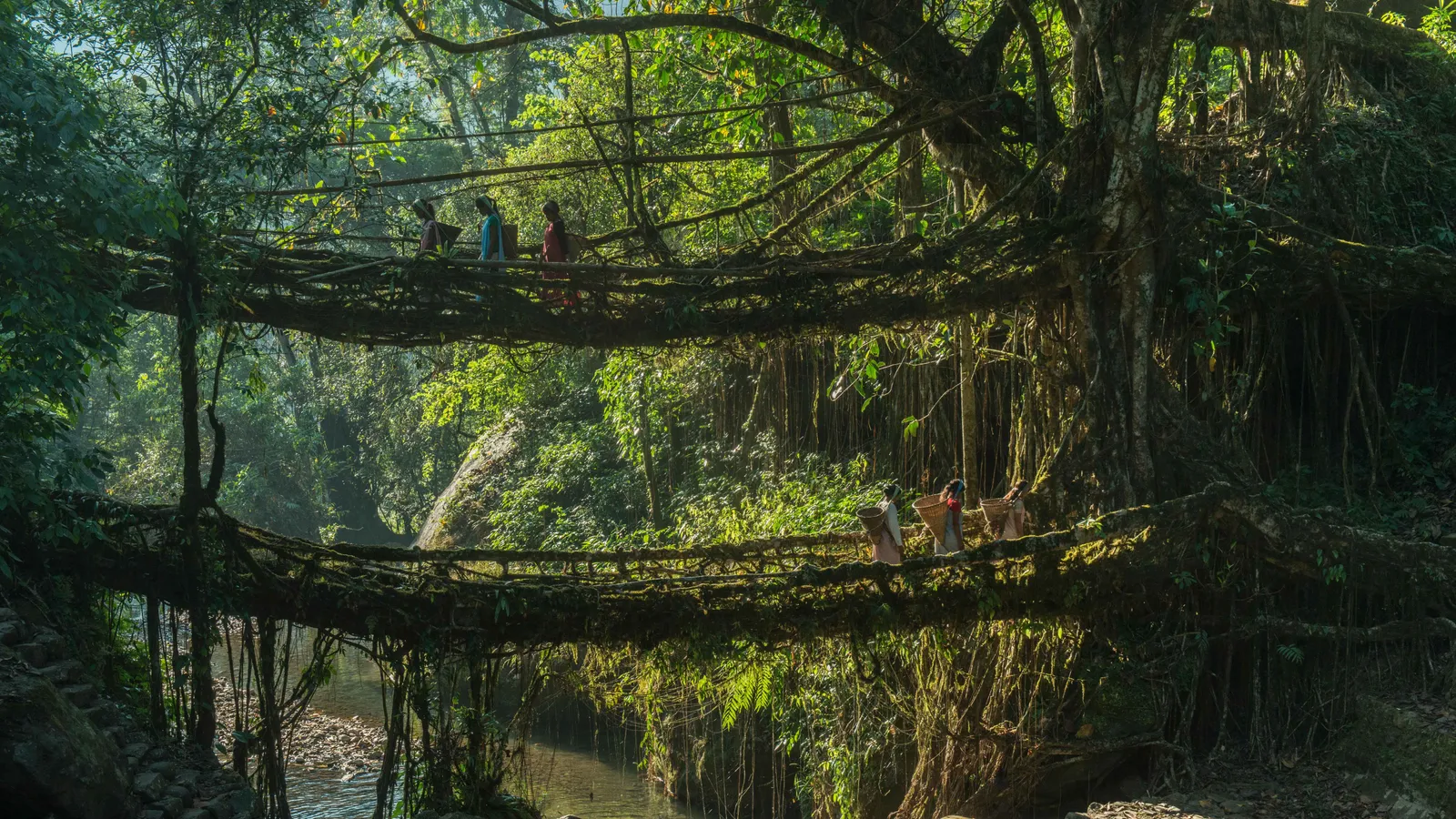- Happy to be a digital colony of the West and China: India has squandered its software lead and lags behind China in artificial intelligence by a decade. Many of its industries are technologically obsolete and dependent on imported technologies. While aspiring to become a world-class manufacturing base, most of India’s workforce is likely to remain immured in low-wage and low-skill tasks relative to better educated countries.
- Vietnam ahead of India in EVs: Vinfast has hired a number of executives, engineers and designers from around the world and that should help them understand consumers in markets like the US and Europe. "They're bringing them in full time, not just as consultants. I think that's going to help them when they try to enter this market."
- The ingenious living bridges of India: For centuries, indigenous groups in north-east India have crafted intricate bridges from living fig trees. Now this ancient skill is making its way to European cities.
- To curb urban flooding, China is building ‘sponge cities’: Professor Yu’s sponge city concept promotes a more harmonious relationship between humans and nature that in effect gives water more room to soak in and pool in urban areas – such as parks that are dry in some seasons and become shallow ponds or channels in rainy seasons. “Floods are not enemies; we can make friends with floods”.
-
The unlikely protector against Bangladesh's rising seas: Oysters engineer their environment by clustering on hard, submerged surfaces and fusing together to create reef structures. Oyster reefs can provide relief to a coast constantly buffeted by strong waves.
That is not their only benefit, though. "What you want is the sedimentation behind the reef structure that the oysters naturally form. The reefs give you a more extensive foreshore and [consequently] calmer waters". Such fluidity is the hallmark of the building with nature approach. And rather than being seen as a setback, it becomes part of the plan. "It's a dynamic process – not hard concrete. And that's the new understanding of using natural forces to achieve our goals". -
Pedestrianise, boost air quality: A clear improvement in air quality was recorded on pedestrianised weekends in central Bengaluru. Pedestrianising an urban street positively impacts QoL.
Pedestrians are at higher risk across India: “Authorities are building more roads and flyovers. They are neglecting the most ancient mode of transportation". - How cities are going carbon neutral: Cities are introducing ultra-Low Emission Zones (ULEZ). Paris is creating 650km of new cycle ways and hopes to open up the whole of the city to bicycles by 2026. The Colombian capital, Bogota, has made 75 miles of streets car-free.
- Give, Give, Give: The path to happiness - Swami Brahmananda
- For every 10 boys there are only six girls: Tamil Brahmin bachelors look towards North India as bride hunt gets tough in TN.
- Analysis: Why is Apple’s M1 chip ao fast?
- Crop Fires:
Smoke from crop fires in northern India blanketed Delhi and contributed to soaring levels of air pollution. https://t.co/Pe30imj6xV pic.twitter.com/RyNEmVcbXx
— NASA Earth (@NASAEarth) November 18, 2021

No comments:
Post a Comment